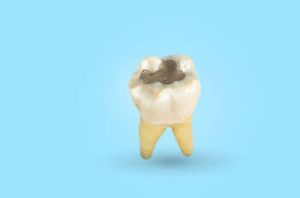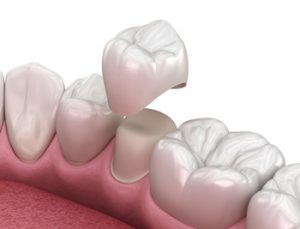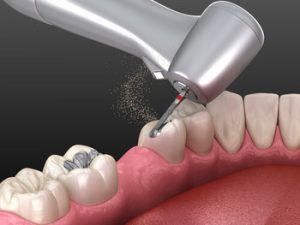
Can Rotten Teeth Be Saved Naturally? Here’s What You Need to Know
Rotten teeth can be alarming and painful, and the thought of losing them can cause anxiety for many. But is it possible to save a rotten tooth naturally? Can the body repair the damage on its own, or is professional dental intervention always required? The answer isn’t so straightforward.
Let’s explore the realities of tooth decay, how far it can go, and whether natural methods can reverse the damage.
Understanding What a Rotten Tooth Really Is
Before diving into treatment options, it’s important to understand what qualifies as a rotten tooth. The term “rotten” usually refers to advanced tooth decay, where the damage has reached the deeper layers of the tooth, possibly causing infections, abscesses, and severe pain.
Rotten teeth are the result of plaque buildup, bacterial activity, and the gradual erosion of tooth enamel and dentin. When left untreated, tooth decay progresses through various stages until the tooth becomes so damaged that it may no longer be savable.
The Tooth Decay Process: A Quick Look at the Stages
 The stages of tooth decay unfold in a predictable pattern:
The stages of tooth decay unfold in a predictable pattern:
- Initial demineralization: Acids from plaque start wearing down the tooth’s enamel.
- Enamel decay: Cavities form as the outer layer is breached.
- Dentin decay: Decay moves into the softer, more sensitive layer beneath the enamel.
- Infected pulp: The pulp, containing nerves and blood vessels, becomes infected.
- Abscess formation: An abscessed tooth may develop, leading to swelling, severe pain, and infection of the surrounding tissues.
Once decay reaches the pulp, the damage is typically irreversible through natural means alone.
Can Rotten Teeth Be Saved Naturally?
If you’re in the early stages of decay, such as enamel demineralization, there’s hope for preventing tooth decay from worsening and possibly even reversing some of the damage. However, once a tooth becomes a badly decayed tooth, it cannot heal itself naturally.
Here’s what natural methods can and cannot do:
What Natural Remedies Can Help With
- Remineralizing early decay: Using fluoride toothpaste and fluoride treatments can help rebuild enamel in the earliest stages.
- Controlling bacteria: Natural remedies like oil pulling, xylitol gum, and a diet low in sugar can reduce dental plaque and slow progression.
- Strengthening enamel: A diet rich in calcium, vitamin D, and phosphorus supports healthy teeth.
- Reducing inflammation: Good nutrition and proper oral hygiene may help manage early gum disease.
What Natural Remedies Cannot Do
- Repair holes in the tooth: Once a cavity has formed in the dentin or pulp, no natural method can fill or restore the tooth structure.
- Treat an infected pulp or abscess: These require professional intervention, such as root canal therapy or tooth extraction.
- Fix badly decayed teeth: If the decay is too advanced, saving the rotten tooth without dental procedures isn’t realistic.
Signs Your Tooth May Be Beyond Natural Healing
If you’re wondering whether your rotten teeth can be saved naturally, consider the following symptoms:
- Persistent tooth sensitivity to hot or cold foods
- Visible holes or tooth discoloration
- Swelling or bleeding around the affected area
- Foul taste or odor from the rotting teeth
- Severe pain when chewing or biting
- Pus or fluid near the tooth, indicating a tooth abscess
These signs suggest that the decayed tooth may need professional care immediately.
Professional Dental Treatments: When Natural Isn’t Enough
Let’s be clear: once decay penetrates past the enamel, your best chance at saving the tooth lies in professional dental treatments. Some of the most effective treatment options include:
Fluoride Treatments
Professional fluoride gel or varnish may help remineralize enamel if decay is caught very early.
Dental Fillings
When the enamel and dentin are damaged but the pulp is still healthy, dental fillings or dental amalgam can restore the tooth’s function and stop further decay.
 Root Canal Treatment
Root Canal Treatment
If the tooth pulp is infected, root canal treatment can remove the infection and save the natural tooth. This procedure involves cleaning out the infected tissue and sealing the tooth.
Dental Crowns
For badly decayed or cracked teeth, dental crowns can restore strength and appearance. A crown acts as a protective cap over the treated tooth.
Tooth Extraction and Replacement
In cases where the rotten tooth cannot be saved, tooth extraction may be the only option. You can then consider dental implants, bridges, or dentures to replace the missing tooth and maintain oral function.
How to Naturally Support Your Oral Health
While natural remedies can’t fix rotten teeth, they can help prevent tooth decay and maintain good oral health. Here’s what you can do:
1. Practice Good Oral Hygiene
- Brush twice a day with fluoride toothpaste
- Floss daily to remove food particles and plaque
- Rinse with an antimicrobial mouthwash
2. Watch Your Diet
- Limit sugary snacks and beverages
- Include plenty of calcium-rich foods like dairy, leafy greens, and almonds
- Stay hydrated to avoid dry mouth
3. Use Natural Supplements Cautiously
Some suggest minerals like calcium phosphate or vitamins D and K2 to aid in remineralization. While these can support overall health, they’re not a substitute for professional dental care.
4. Schedule Regular Dental Checkups
Even if your teeth feel fine, visiting the dentist regularly helps detect early decay before it becomes a serious issue.
 Is It Ever Too Late to Fix Rotten Teeth?
Is It Ever Too Late to Fix Rotten Teeth?
It depends on the severity of the decay. If you’re in the early stages, you might be able to stop tooth decay and prevent it from spreading. But if you have a badly decayed tooth, especially one causing severe pain or infection, professional treatment is the only reliable way to fix rotten teeth.
Ignoring advanced decay can lead to tooth loss, infection, or even systemic health problems.
Quick FAQs
Can I treat a rotten tooth at home without seeing a dentist?
No. While home remedies may reduce symptoms or slow progression in early decay, advanced rotten teeth need professional care.
Does fluoride really help reverse tooth decay?
Yes, in the early stages. Fluoride treatments can remineralize enamel before a cavity forms.
Is tooth extraction the only solution for rotting teeth?
Not always. Root canals, dental crowns, or fillings may save the tooth, depending on the severity of decay.
What happens if I ignore a decayed tooth?
It may lead to infection, tooth abscess, tooth loss, or even impact your overall health.
How can I prevent further decay in my teeth?
Brush and floss daily, eat a tooth-friendly diet, and visit your dentist for regular dental checkups.
Final Thoughts: Can Rotten Teeth Be Saved Naturally?
So, can rotten teeth be saved naturally? In the very early stages of the tooth decay process, it’s possible to slow down or even reverse damage with good oral hygiene practices and the right diet. However, once decay reaches the dentin or pulp, natural methods fall short.
The best approach is a combination of prevention, early detection, and timely professional care. If you’re unsure about the condition of a specific affected tooth, don’t guess — seek advice from a dental professional.
A healthy smile is worth the effort, and acting early could mean the difference between saving your natural teeth or needing more extensive dental procedures down the road.
References:
https://www.medicinenet.com/can_rotting_teeth_be_saved/article.htm
https://www.colgate.com/en-ph/oral-health/threats-to-dental-health/rotten-teeth-symptoms-and-treatment
https://www.mayoclinic.org/diseases-conditions/cavities/diagnosis-treatment/drc-20352898
https://my.clevelandclinic.org/health/diseases/10946-cavities





